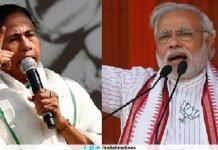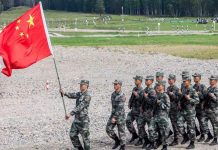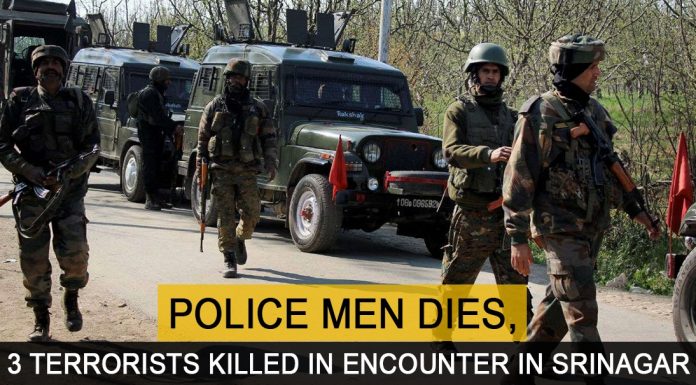
In the complex political landscape of Jammu and Kashmir, the struggle for representation and autonomy continues to be a pressing issue. Recently, Sajad Lone, a significant political figure in Jammu and Kashmir, has taken a powerful stance to defend the role and significance of Kashmir’s Members of the Legislative Assembly (MLAs). This move highlights the intense debate surrounding Kashmir’s political autonomy and the rights of its elected representatives, especially in the post-Article 370 era. The role of the MLA has come under scrutiny, as certain parties attempt to reduce the scope of these representatives’ powers, sparking concerns over the erosion of Kashmir’s political voice.
Visit Us: www.indiatimelines.com
The Political Climate in Jammu and Kashmir Post-Article 370
The abrogation of Article 370 in August 2019 brought significant changes to the political dynamics of Jammu and Kashmir. This article had granted Jammu and Kashmir a special status, allowing it to have its constitution and autonomy over internal matters. However, after its abrogation, the region became a Union Territory, directly governed by the Central Government of India. The political shift has impacted local representatives and led to a feeling of disempowerment among Kashmiri leaders who previously held influential positions.
With the shift in governance, the role and authority of local representatives have been substantially diminished, leading to frustration and unrest among political leaders like Sajad Lone, who has been an outspoken advocate for Kashmir’s right to self-governance. The change has put Kashmir’s MLAs at the forefront of a struggle to reclaim their powers and responsibilities, as the new governance structure imposes constraints on their influence over local policies and decision-making.
Sajad Lone: A Prominent Voice for Kashmiri Autonomy
Sajad Lone, leader of the Jammu and Kashmir People’s Conference (JKPC), has emerged as a central figure in advocating for the restoration of political rights for the people of Kashmir. A seasoned politician with a deep connection to Kashmir’s unique culture and identity, Lone has consistently called for the reinstatement of statehood for Jammu and Kashmir and the revival of its legislative assembly’s full authority.
Lone’s recent efforts to protect the MLAs of Kashmir from the erosion of their powers underscore his commitment to representing Kashmiri interests. He emphasizes that MLAs are crucial representatives of the people, serving as their voice in legislative matters that affect day-to-day lives. Lone’s advocacy for MLA rights is rooted in his belief that the people of Kashmir deserve self-representation in governance matters, independent of overarching decisions imposed by the central government.
Why Protecting Kashmir’s MLAs Matters
The role of an MLA in Kashmir is not only about passing laws but also about maintaining the cultural, social, and economic rights of the people they represent. As elected representatives, MLAs are entrusted with the duty of voicing the concerns of their constituents and working towards regional development and stability. However, with the abrogation of Article 370, MLAs have experienced a substantial reduction in their legislative powers, leading to a dilution of the democratic voice of Kashmiris.
The diminishing influence of MLAs also raises concerns about regional representation in decisions that impact Kashmir. Decisions that were previously under the purview of the Kashmir Legislative Assembly are now subject to central government oversight, often without consultation with local representatives. By protecting the role of MLAs, Lone argues that Kashmir can safeguard its regional identity and ensure that the aspirations of its people are not overlooked in national policy decisions.
The Legal Battle for MLA Representation
The fight to protect the powers of Kashmir’s MLAs has also extended to the legal arena, as leaders like Sajad Lone are exploring legal avenues to regain the legislative authority that was stripped away after the abrogation of Article 370. Through petitions and appeals to the judiciary, these leaders seek to challenge the current structure that limits the powers of Kashmir’s elected officials. By defending these rights through legal channels, Lone and his supporters aim to restore democratic processes and ensure that the people of Kashmir have a meaningful say in their governance.
Legal experts argue that the centralization of powers in the Union Territory setup conflicts with the democratic principles that India upholds. Protecting MLA rights through legal measures would not only empower local representatives but also establish a precedent for democratic governance in Union Territories. Lone’s approach to protecting MLA representation through judicial means demonstrates his dedication to restoring a balanced, just, and democratic framework in Kashmir.
The Regional Impact of Lone’s Advocacy
Sajad Lone’s campaign to protect the role of MLAs resonates strongly within Kashmir, where the sense of regional identity and autonomy is deeply rooted. The people of Kashmir are supportive of Lone’s efforts as they seek to maintain a voice in the legislative processes that shape their lives. The reduction in MLA powers has left many Kashmiris feeling disenfranchised, and Lone’s advocacy serves as a rallying point for those who want to see their elected representatives restored to full authority.
Lone’s stance has inspired other political leaders in the region to take a firmer stand on the issue of representation, with a growing coalition of politicians joining his call to protect Kashmir’s legislative autonomy. This united front demonstrates the collective will of Kashmiri leaders to fight for the preservation of their rights and responsibilities, reinforcing the importance of MLA representation as a cornerstone of Kashmir’s democratic structure.
The National Implications of Kashmir’s MLA Issue
The debate surrounding the role of MLAs in Kashmir has drawn national attention, as it raises broader questions about representation and autonomy within the Union Territory framework. Sajad Lone’s fight for MLA rights is not only about regional governance but also about setting a precedent for how other Union Territories might address similar issues in the future. The implications of his advocacy extend beyond Kashmir, potentially influencing the governance structure of other regions seeking greater autonomy within India.
From a national perspective, the protection of MLA rights in Kashmir could pave the way for more balanced Union Territory governance, where local representatives retain meaningful powers rather than operating as extensions of the central administration. Lone’s advocacy sends a message that regional voices are crucial for maintaining the integrity of a diverse and democratic nation.
Conclusion: Sajad Lone’s Vision for a Self-Represented Kashmir
Sajad Lone’s commitment to defending the rights of Kashmir’s MLAs reflects his larger vision for a Kashmir that governs itself within the framework of Indian democracy. His efforts represent a call for restoration of statehood, preservation of regional identity, and the empowerment of local representatives who understand the unique needs and aspirations of the people of Kashmir. Lone’s advocacy for MLA rights is not merely a political stance but a testament to his dedication to Kashmir’s democratic values and its place within India’s diverse and pluralistic society.
As Sajad Lone continues his fight, his leadership brings hope to many Kashmiris who yearn for a return to self-representation and governance. Through legal, political, and social efforts, Lone’s movement to protect the role of MLAs aims to restore the democratic agency that was once a defining aspect of Jammu and Kashmir’s political landscape.


































Přijetí hypoteční platby může být problematické pokud nemáte rádi
čekání v dlouhých řadách , vyplnění mimořádné formuláře
, a odmítnutí úvěru na základě vašeho úvěrového skóre .
Přijímání hypoteční platby může být
problematické, pokud nemáte rádi čekání v dlouhých řadách ,
podávání extrémních formulářů , a odmítnutí úvěru na základě vašeho úvěrového skóre .
Přijímání hypoteční platby může být problematické , pokud nemáte rádi čekání
v dlouhých řadách , vyplnění extrémních formulářů a odmítnutí úvěrových rozhodnutí založených na úvěrových skóre
. Nyní můžete svou hypotéku zaplatit rychle a efektivně
v České republice. https://groups.google.com/g/sheasjkdcdjksaksda/c/Tjygg5oLTiQ